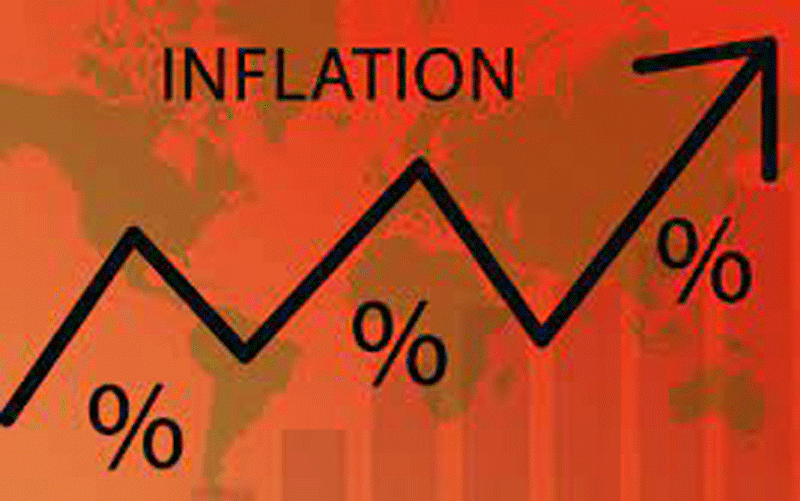
IT is, indeed, a tough proposition to be able to tame inflation in an economy whose favoured currency is not your own and in which most business activity is informal and, therefore, unregulated and off the radar.
In a formal economy with own currency, the task of taming inflation is not that difficult and comprises keeping check of money supply, monitoring liquidity, managing government expenditure and debt, and controlling interest rates so that access to credit can either be accelerated or slowed down depending on the business cycle.
Unfortunately, an economy such as ours no longer responds in predictable ways as assumed under neo-classical economic thinking used by monetary and fiscal policy decision-makers today.
We have an emergent complex economy which requires new thinking tools under what is termed “complexity economics”.
In complexity economics, it is accepted that there is continuous adaptation which leads to a generation of new patterns and behaviours — emergent phenomena — arising from within the system.
This process is referred to as “endogenous evolution”.
Zimbabwe’s monetary economy is hardly driven by economic fundamentals, but by the overwhelming psychology on money (behavioural economics).
We all know that inflation is the number one enemy of any society.
- Drama around Ndebele king making a mockery of the throne
- ‘Inflation could shoot to 700% by April next year’
- New perspectives: Inflation control critical for economic growth
- Inflation spike: Why interest rates aren’t the answer
Keep Reading
It erodes value and makes work worthless, the future unpredictable, creates poverty and hopelessness.
Hyperinflation is the devil incarnate we all hate and the nightmare of 2008 still lingers in the brains of the living.
In fact, that experience in 2008 shifted our paradigm on how we react to, treat money and perceive value to this day.
It overshadows any logic or economic theory and replaces it with irrationality and fear driven by imagined danger of potential loss of value, which leads to impulsive and speculative behaviours (complexity economics).
There is no doubt about the role of policy management and the Reserve Bank of Zimbabwe (RBZ) needs to focus more on shaping the appropriate environment and allow the markets to assume their natural role of differentiating, selecting and amplifying successful economic behaviour.
But by analysing and monitoring evolutionary processes within the market, policymakers can attempt to influence them so as to better respond to the needs of citizens.
Despite the complexities pertaining, the RBZ, in its latest monetary policy statement (MPS) of February 2023, envisages low domestic inflation pressures going forward, with average blended month-on-month inflation of below 1,5% in 2023.
In line with stable monthly blended inflation, annual inflation is expected to progressively decline to close the year in the range of 10%-30%.
According to the MPS report: “The blended inflation is the most appropriate inflation for the Zimbabwean economy in view of the increased use of foreign currency in domestic transactions within the economy and the high levels of foreign exchange deposits and loans in the banking sector of around 65%. Therefore, it is essential and logical that the blended rate of inflation should be the reference rate of inflation in Zimbabwe.”
It does make sense to look at blended inflation and not purely Zimdollar inflation as the latter is hugely dependent on the former.
Zimbabweans prefer the United States dollar and in my opinion, it is that inflation that has a “pass through” effect on the general level of prices and future expectations.
We all know that inflation is driven more by the psychology of past experiences and future expectations as opposed to fundamentals of economic policy.
Using blended inflation will help us have a more realistic picture on inflationary pressures and also reduces the temperature for unnecessary Zimdollar price increases.
Achieving macro-stability is the most important challenge going forward, especially in this election year where government debt could spiral.
According to RBZ, the declining annual inflation projection path for 2023 is underpinned by the following broad assumptions:
- Continued tight monetary policy stance, with interest rates aligned to the expected inflation path;
- Strong fiscal stance including insistence on value for money in all government contracts and procurement systems;
- Strong co-ordination between fiscal and monetary authorities on liquidity management;
- Continued use of the dual currency system; and
- Normal to above normal rainfall which will dampen food prices.
Exogenous geopolitical developments always have a huge impact on what goes on in our economy. International market growth and stability benefits us but whether our wishes will be granted or not is totally out of our control. Only time will tell.










